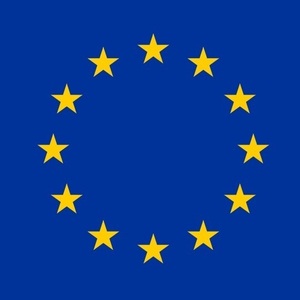EU to monitor surging ethanol imports

September 18, 2023
BY Erin Krueger
The European Commission on Sept. 14 announced it will implement retroactive surveillance measures on imports of ethanol from several countries, including the U.S. The surveillance measures are to remain in effect for three years.
Information published in the Official Journal of the European Union explains that imports of fuel ethanol have increased recently in significant amounts. Imports of ethanol for all purposes from all origins increased by nearly 80 percent between 2021 and 2022. Fuel ethanol imports were up 45 percent in 2022 when compared to the prior year. The top suppliers of ethanol to the EU are Brazil, the U.S., the U.K. and Peru.
Advertisement
Advertisement
According to the European Commission, the EU market appears to be an attractive destination for fuel ethanol imports due to its high prices. The commission estimates that import prices from Brazil and the U.S. are more than 15 percent lower than EU prices.
The recent increase in fuel ethanol imports has coincided with a 10 percent decrease in the market share of the EU industry. The European Commission said the ratio of imports as compared to EU production increased from 21 percent in 2021 to 39 percent in 2022. In addition to the production decrease, a survey of EU ethanol producers indicates that capacity utilization has fallen by 9 percent, with union sales volumes down 6 percent, inventories down 15 percent, investment down 44 percent and profitability down 57 percent.
Advertisement
Advertisement
ePURE, the European renewable ethanol association, is applauding the European Commission for its action. “The EU renewable ethanol industry is a strategic sector for Europe, with a significant role in tackling climate change and de-fossilizing the transport sector, boosting energy independence and bolstering food and feed security,” said David Carpintero, director general of ePURE. “This Commission action is reassuring news for the sector as monthly monitoring will allow a close statistical picture of volumes of fuel ethanol imports and help the EU to act quickly to respond to a threat of serious injury for the EU industry, if needed.”
“Surveillance is a first step to collect information and monitor the evolution of imports,” he added. “The EU renewable ethanol industry stands ready to act to prevent further injury to preserve its sector and jobs throughout the EU.”
A full copy of the European Commission’s Sept. 14 announcement is available on Official Journal of the European Union website.
Related Stories
The U.S. exported 31,160.5 metric tons of biodiesel and biodiesel blends of B30 and greater in May, according to data released by the USDA Foreign Agricultural Service on July 3. Biodiesel imports were 2,226.2 metric tons for the month.
CARB on June 27 announced amendments to the state’s LCFS regulations will take effect beginning on July 1. The amended regulations were approved by the agency in November 2024, but implementation was delayed due to regulatory clarity issues.
Legislation introduced in the California Senate on June 23 aims to cap the price of Low Carbon Fuel Standard credits as part of a larger effort to overhaul the state’s fuel regulations and mitigate rising gas prices.
The government of Brazil on June 25 announced it will increase the mandatory blend of ethanol in gasoline from 27% to 30% and the mandatory blend of biodiesel in diesel from 14% to 15%, effective Aug. 1.
The U.S. EIA reduced its 2025 and 2026 production forecasts for a category of biofuels that includes SAF in its latest Short-Term Energy Outlook, released June 10. The forecast for 2025 renewable diesel production was also revised down.
Upcoming Events









